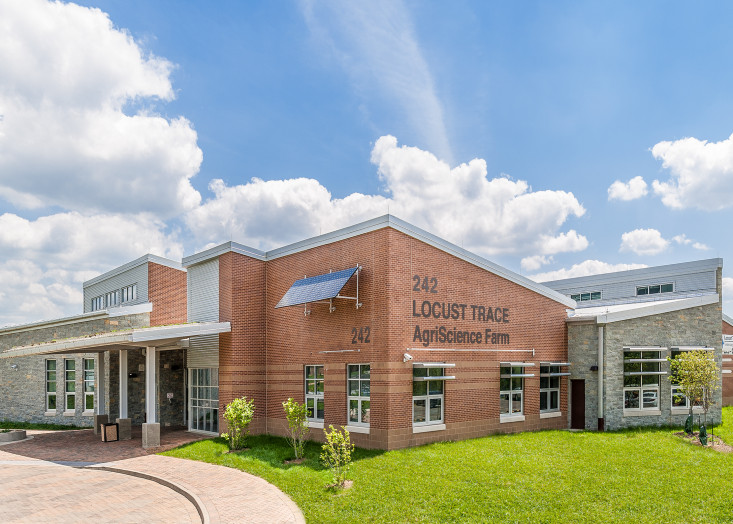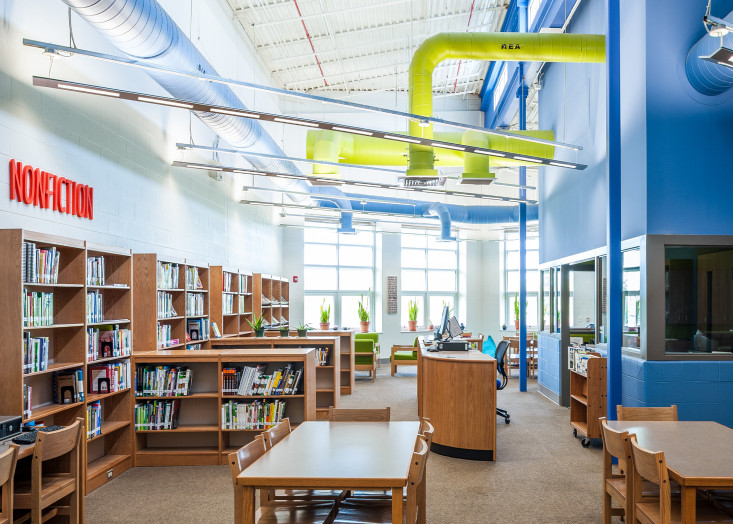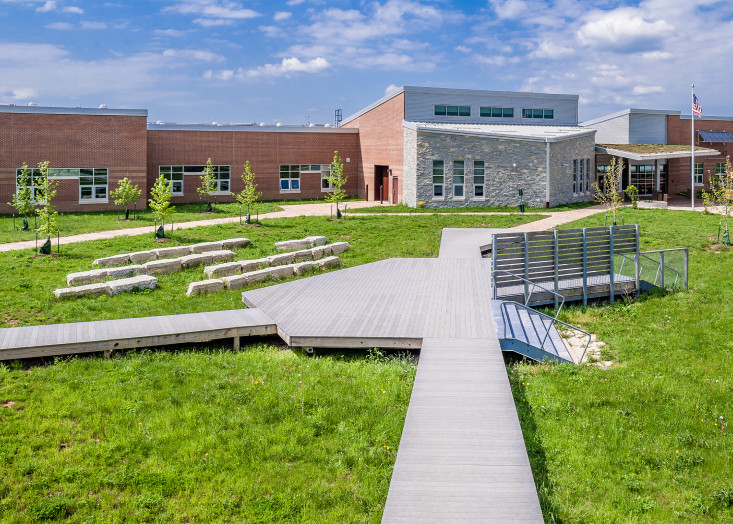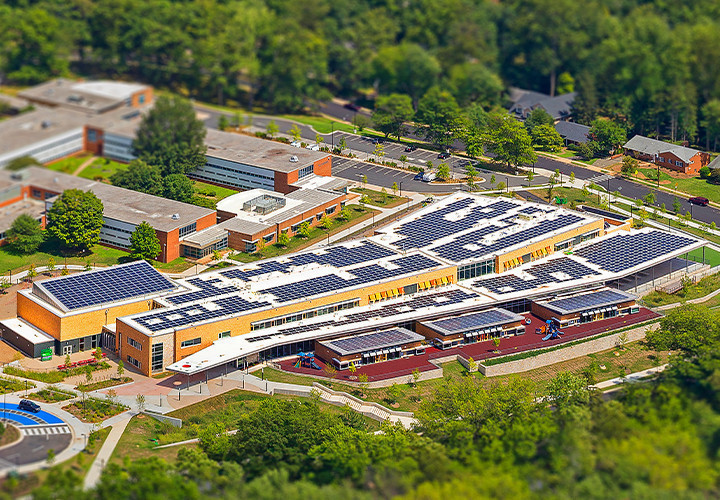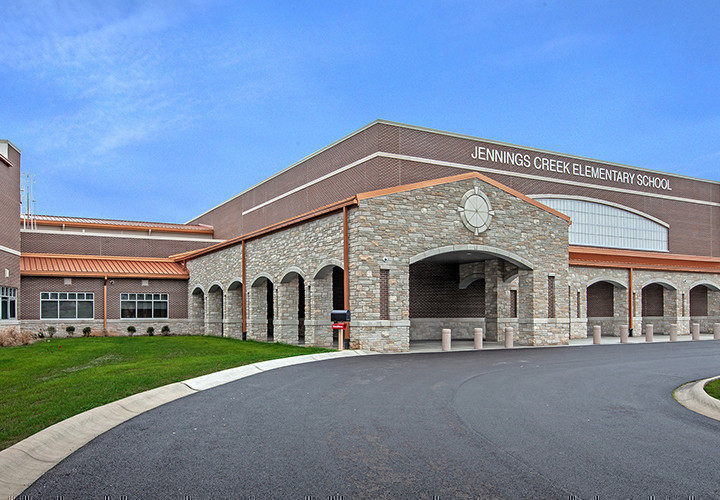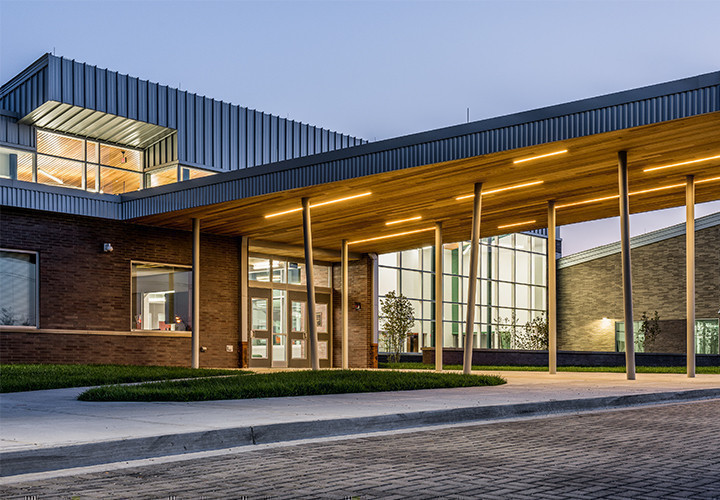The Fayette County Public Schools' Locust Trace Agri-Science Campus was designed by CMTA to produce more energy than it consumes annually. The campus houses two main facility buildings that add up to over 70,000 green square feet. The energy efficient design was created to improve Occupant Health and Wellness by providing access to natural daylight through large windows and tubular skylights, as well as supporting classroom daylight harvesting systems. Outside air is brought into the building through a Variable Volume Energy Recovering Ventilator that is controlled through Aircuity, a carbon dioxide monitoring system. All building areas employ distributed intelligent lighting control systems, which also control user plug loads. Each classroom is heated and cooled via an earth coupled geoexchange water source heat pump with integral hot water coils fed from the solar thermal system mounted on the roof.
CMTA implemented its Data Driven Design approach to design the buildings efficiently, drastically reducing energy consumption through a roof-mounted photovoltaic (PV) system and solar thermal arrays. The PV array size of 175KW is designed to generate enough electrical power to offset all site power usage, creating Net Zero site consumption. The solar thermal array provides heat for three building systems, including domestic hot water for all showers and lavatories. The additional energy acquired by the thermal array in the cooling months allows the regeneration of the geothermal well field to offset the building heating load. The end result is a Zero Energy academic campus that produces more energy than it consumes each year.
